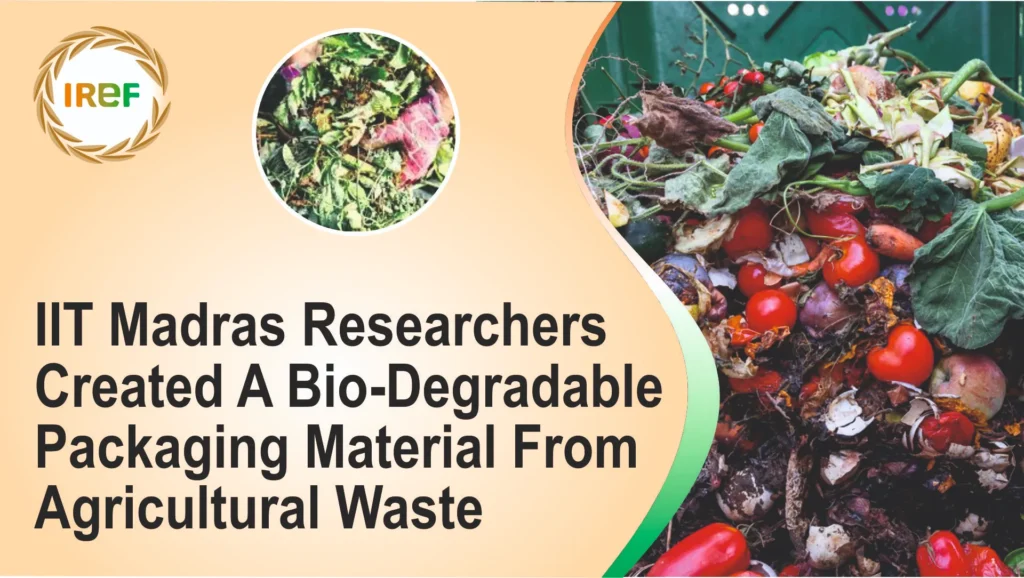IIT Madras Researchers created a bio-degradable packaging material from Agricultural waste in an eco-friendly context, neglecting plastic foams.
The team of researchers has shown their creation of bio-degradable packaging material made from mycelium, a root-like structure of fungi grown on agricultural and paper waste, that can offer the required strength & quality for packaging, while remaining eco-friendly.
According to them, their creation of bio-degradable packaging material made from mycelium can handle two challenges: the first one is plastic pollution, and the second one is agricultural waste disposal.
Prof Lakshminath Kundanati from the Department of Applied Mechanics and Biomedical Engineering said that the research demonstrated feasibility at the laboratory scale, with mechanical properties, water resistance, and biodegradability. The study was published in Bioresource Technology Reports.
In addition, he asserted: “The way forward is optimising substrate compositions for scalability and extending shelf life through natural coatings,”. Adding that “These composites can also be modified for use in engineering applications such as thermal and acoustic insulation,”.
The team cultivated fungi like Ganoderma lucidum and Pleurotus ostreatus, not only this, two types of mushrooms, on agricultural and paper waste. Agricultural residues can be further converted into fully compostable packaging solutions, using this approach, preventing open burning.
The researchers experimented with combinations of fungal strains and substrates to create composites with mechanical properties that resemble plastic foams. Sandra Biby, research scholar at IIT-M, said: “The study identifies ideal fungus-substrate combinations that outperform foams such as EPS and EPE. Ganoderma on cardboard achieved compressive strengths an order of magnitude higher than EPS (Expanded Polystyrene)”.
Apart from this, Prof Kundanati and his team founded a startup named NatureWrks Technologies to develop and commercialise the product. They are exploring industry partnerships and licensing agreements to escalate the production and hope to secure government funding for faster development. Notably, at present, India generates nearly four million tonnes of plastic waste and 350 million tonnes of agricultural waste each year. According to researchers, using mycelium-based bio-degradable packaging material could substantially diminish the landfill burden, microplastic pollution, and greenhouse gas emissions related to plastic production and incineration.



